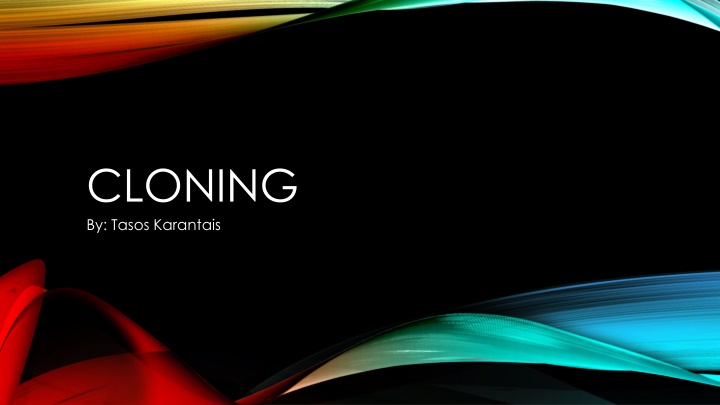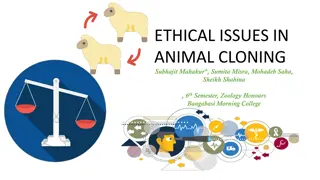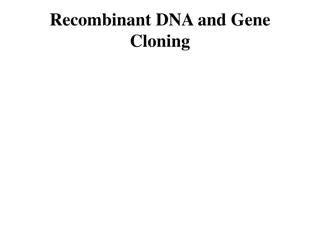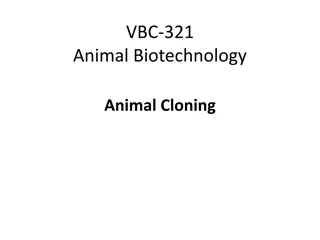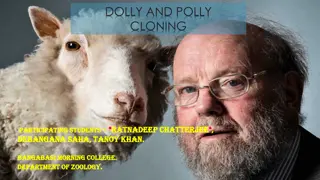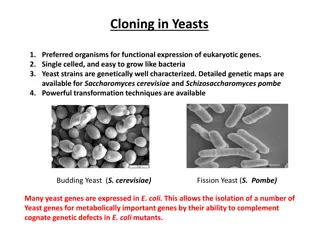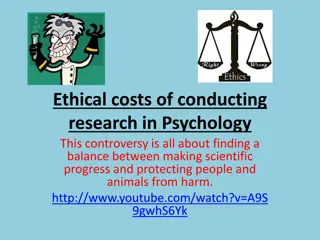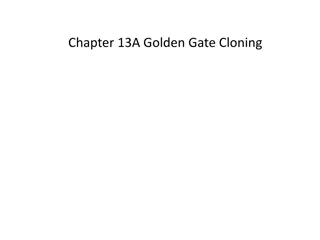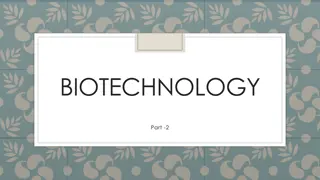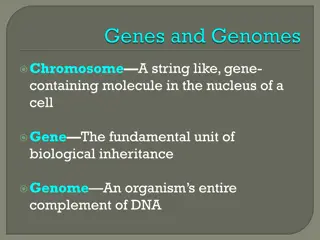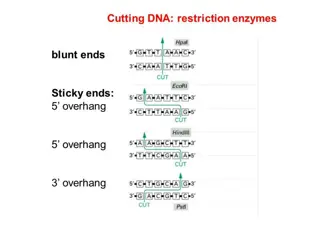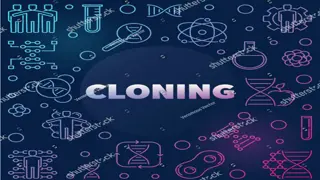Understanding Cloning: Purpose, Benefits, Risks, and Ethical Considerations
"Cloning serves the purpose of producing stem cells for inventing treatments. It has benefits like disease research and food production, but also risks such as health problems and ethical considerations related to religious beliefs. The future implications include potential for a clone army and health risks to mothers, among others."
Download Presentation

Please find below an Image/Link to download the presentation.
The content on the website is provided AS IS for your information and personal use only. It may not be sold, licensed, or shared on other websites without obtaining consent from the author.If you encounter any issues during the download, it is possible that the publisher has removed the file from their server.
You are allowed to download the files provided on this website for personal or commercial use, subject to the condition that they are used lawfully. All files are the property of their respective owners.
The content on the website is provided AS IS for your information and personal use only. It may not be sold, licensed, or shared on other websites without obtaining consent from the author.
E N D
Presentation Transcript
CLONING By: Tasos Karantais
HOW DOES IT WORK? WHAT IS IT S PURPOSE? The purpose of cloning is producing stem cells that are the same DNA as the donor cell, this can help to invent new treatments to destroy deseases. A somatic cell has to be removed off of an animal, such as a skin cell and tranfered to the egg cell or oocyte , that had it s own nucleous removed.
BENEFITS RISKS Can be used to find deseases Can cure some deseases Can be used to clone crops and prevent food reduction Can be useful to infertile parents to have children with at least some DNA in their offspring Cloning has a very low percentage of being succesful causing miscarriage Succesful offspring can have health problems and birth defects Cloning may not work correctly with genes causing abnormal gene expression
ETHICAL COSIDERATIONS Ethical considerations of cloning are mostly religious. Religions such as: Christianity, Islam and Judaism do not agree with human cloning, becasue it is an act against God. The meat and other roducts that come from cloned animmals, has been approved in the U.S. but, is not labeled.
MY OPINION In cloning, if a country is in need and desperate of food sources, then it should be allowed and only then; however, human cloning should not be allowed. Only when science is approved of human cloning but, it should not be taken too far, as creation and birth should always be natural.
FUTURE IMPLICATIONS An unlimited army of clones could be created Humans with horrible deseases or deformities (even new ones) Health risks to the mother Very low succes rate Phsycological harm to the clone Alter family relationships
BIBLIOGRAPHY 1. Cloning Fact Sheet." National Human Genome Research Institute (NHGRI). N.p., 11 May 2016. Web. 12 Jan. 2017. 2. Maas, Roxanne. "What Are the Risks of Cloning?" LIVESTRONG.COM. Leaf Group, 10 Sept. 2015. Web. 12 Jan. 2017. 3. Ethics of Cloning." Wikipedia. Wikimedia Foundation, n.d. Web. 12 Jan. 2017.
